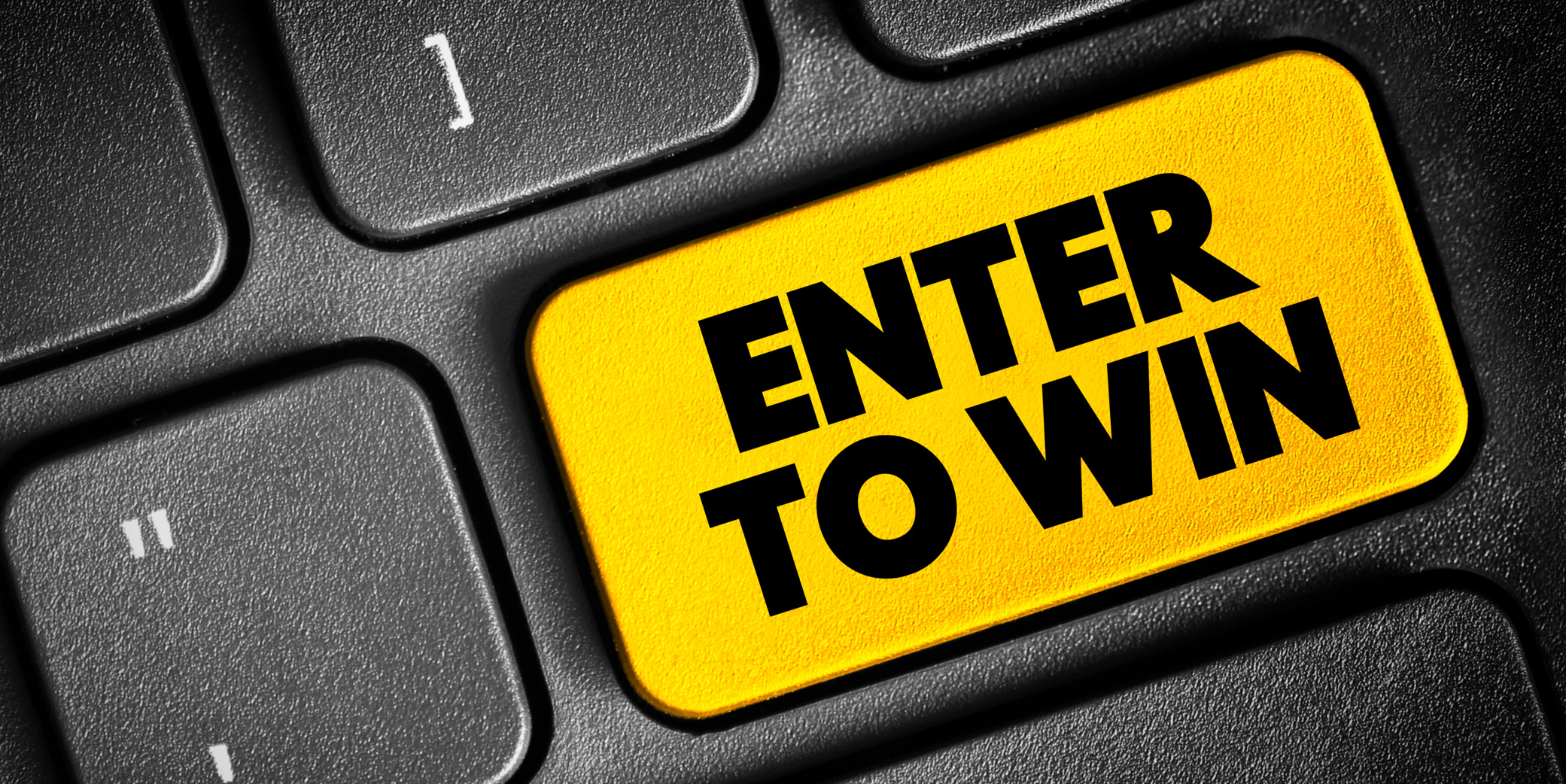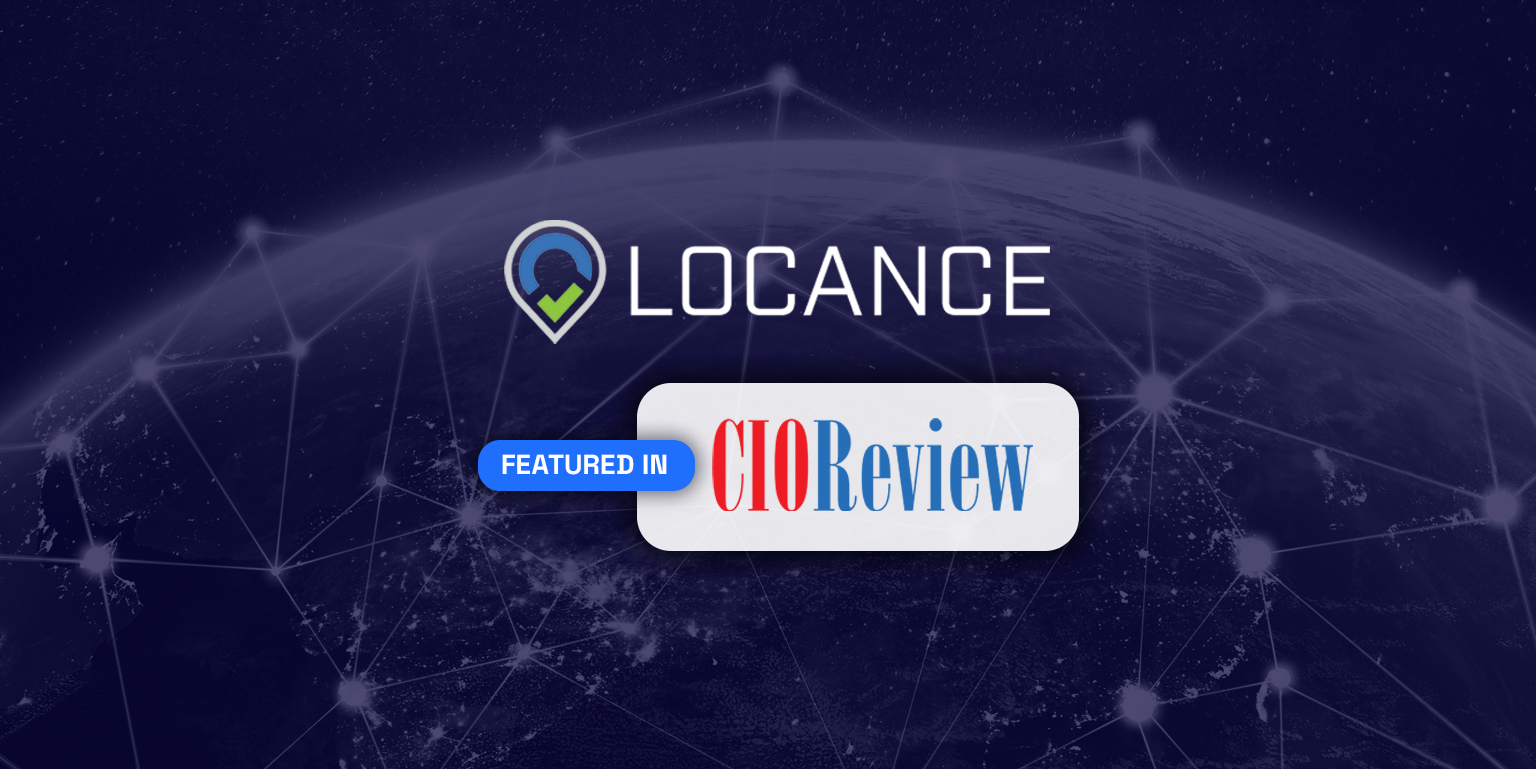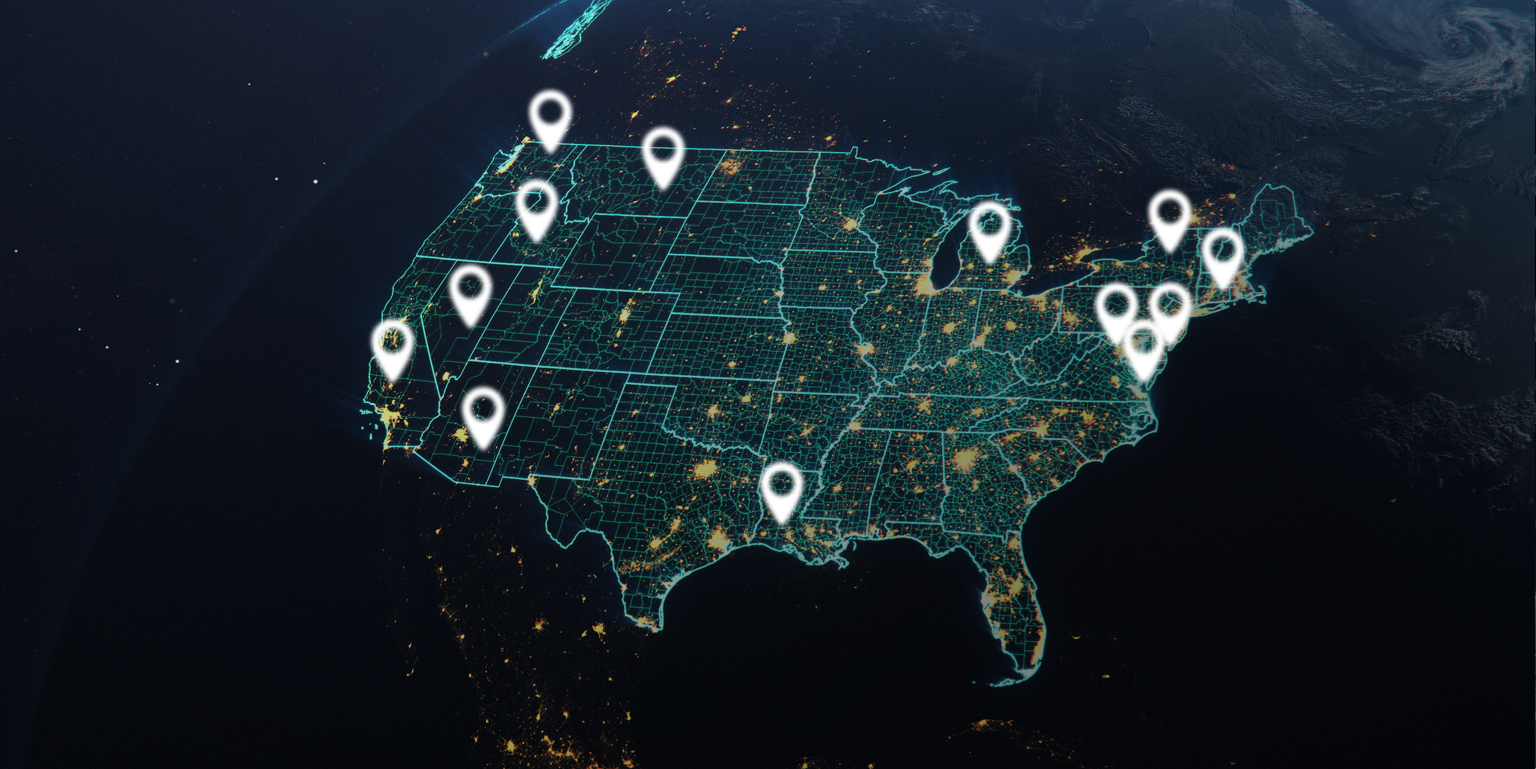Sweepstakes geolocation compliance: Navigating evolving regulation, risk, and opportunity
June 6, 2025

Key takeaways*
Evolving regulations: States like New York and Montana are tightening sweepstakes laws, creating a complex compliance landscape.
Geolocation is critical: Real-time, multi-layered location verification is now essential for payment access and risk management.
Compliance = advantage: Proactive compliance with geolocation and KYC standards sets operators up for long-term success.
*Key takeaways were created with the use of AI and reviewed by a human.
The sweepstakes gaming industry is experiencing explosive growth, with revenues projected to reach $6.9 billion by 2025 at a compound annual growth rate of 31% (Casino Reports, 2024). For business leaders operating in this space or considering entering it, there’s never been a more exciting or complex time to be involved in sweepstakes gaming.
But beneath the surface of this booming market lies a regulatory landscape that’s both fragmented and fast-changing. No matter your role in the industry, understanding modern sweepstakes geolocation compliance is critical to your platform’s long-term success.
The reality behind the numbers
The sweepstakes market has grown from $3.1 billion in 2022 to a projected $11 billion by the end of 2025. This rapid expansion has caught the attention of regulators, payment processors, and traditional gaming operators who view sweepstakes gaming as both an opportunity and a risk.
What makes sweepstakes gaming attractive is also what makes it risky: it operates in the gaps between traditional gambling regulations. The dual-currency model of sweepstakes platforms has allowed operators to flourish in states where traditional online gambling remains prohibited.
Currently, only seven states allow online poker and six allow online casinos, but sweepstakes offers an alternative avenue for players in the remaining 43 states. This accessibility has been a key driver of growth, while simultaneously raising concerns for regulators.
The patchwork compliance challenge
Unlike traditional gambling, sweepstakes gaming isn’t regulated at the federal level. This has created a state-by-state patchwork of regulations that’s becoming increasingly complex to navigate. Based on current market analysis, new operators in this space typically launch in approximately 41 states plus DC, while avoiding the 9 states that either ban sweepstakes gaming or are in the process of implementing restrictive legislation.
Let’s take a closer look.
States taking aggressive action
Recent legislative developments show the regulatory landscape is tightening rapidly:
- New York has introduced Senate Bill 5935 and Assembly Bill 6745, which would prohibit online sweepstakes games that utilize dual-currency systems and impose fines ranging from $10,000 to $100,000 per violation.
- Washington has already declared sweepstakes casinos illegal, with the Washington Gambling Commission stating that “No Washington law or rule uses ‘sweepstakes’ to reference a raffle or promotional contest of chance.”
- Montana became the first state in 2025 to pass anti-sweepstakes legislation, with the law set to take effect in October 2025.
- Michigan has already taken enforcement action, with the state Attorney General ordering sweepstakes operators to cease operations.
The “allowed but unregulated” gray zone
Most states fall into what industry insiders call the “allowed but unregulated” category. While these states don’t specifically prohibit sweepstakes gaming, they don’t embrace it either. This gray area creates operational uncertainty and compliance challenges that proactive operators are striving to get ahead of.
Payment processors: The invisible gatekeepers
One of the most under-discussed realities of sweepstakes compliance is the critical role of payment processors. From Visa to Stripe and PayPal, many processors are enforcing their own internal standards, which are often stricter than what regulators require. Here’s why:
- Chargeback risk: Disputed transactions in gaming-adjacent industries can be higher than traditional e-commerce.
- Fraud exposure: The digital nature of sweepstakes gaming makes it attractive to fraudulent activities.
- Reputational risk: Payment processors must protect their relationships with banks and regulators, so their risk tolerance is extremely low.
If your platform can’t reliably verify that a user is in a “permitted” jurisdiction based on credible, real-time geolocation data, you may find yourself cut off from payment processing altogether.
This is why sweepstakes geolocation compliance has evolved from a “nice-to-have” feature to a business-critical requirement. Payment processors are increasingly demanding robust geolocation verification as a condition of service, making it a gatekeeper technology for market access.
What effective sweepstakes geolocation compliance looks like
Sweepstakes geolocation compliance requires more than simply checking IP addresses; it involves building a comprehensive trust and verification system. A compliant geolocation platform like Locance will detect and analyze multiple signals simultaneously. Robust solutions should offer:
Multi-signal detection
- Device and browser location with permission for high precision
- IP address analysis and anomaly detection
- Proxy and VPN identification and blocking
- Wi-Fi and mobile network indicators
- GPS verification on mobile devices
- Behavioral analytics and historical consistency patterns
- Device fingerprinting and spoof detection for fraud prevention
Real-time risk assessment
Spoofing tools today are cheap and prevalent, so users who want to circumvent geographic restrictions have plenty of options at their disposal. Passive location checks are no longer sufficient. Modern sweepstakes compliance requires active, multi-layered verification that can adapt to emerging spoofing techniques.
Regulatory alignment
Your geolocation system must be flexible enough to adjust to changing state regulations. When New York implements its anti-sweepstakes legislation or when other states follow Montana’s lead, you need to be able to update your compliance rules immediately, not weeks or months later.
The international misconception
Many operators assume that international markets offer fewer compliance headaches than the U.S. This is rarely the case, and the misconception can be costly.
- Canada: While it’s often seen as more permissive, Canada has strict advertising guidelines and significant regional distinctions. Quebec has its own set of regulations that differ from the rest of Canada.
- LATAM markets: Latin American countries may appear to have a more permissive stance toward sweepstakes gaming, but enforcement can be unpredictable, and regulations can change rapidly.
- Europe and GDPR: If you’re collecting location data from EU users, you’re subject to GDPR requirements, including user consent protocols, clear data use disclosures, and retention policies you can defend in an audit. The complexity of GDPR compliance for location-based services shouldn’t be underestimated.
International markets come with their own version of regulatory complexity and are not necessarily low-risk alternatives to U.S. operations.
Why sweepstakes gaming is worth the compliance investment
Despite the regulatory challenges, there are clear reasons why sweepstakes gaming continues to attract operators and investors:
User acquisition power: Sweepstakes gaming is a proven user acquisition magnet. The “free-to-play, win real prizes” model appeals to a broad demographic, including users who are wary of traditional gambling.
Market access: Sweepstakes gaming provides access to markets where traditional online gambling is prohibited, dramatically expanding your total addressable market.
Lower barriers to entry: While compliance is critical, the regulatory barriers are still lower than those required for traditional online gambling licenses.
Growing consumer acceptance: Player participation in sweepstakes gaming rose by more than 30% year-over-year in 2024, showing strong consumer demand.
However, the low-regulation image that initially attracted operators to sweepstakes gaming is rapidly changing. As CDC Gaming notes, “there will be a lot of states that [take] action to significantly restrict or outright ban the sweepstakes casino model” in the coming year.
Age verification: The next compliance hurdle
Beyond geolocation, age verification is a growing concern for sweepstakes operators. Regulators are particularly worried that sweepstakes games, with their colorful animations, “spin the wheel” mechanics, and game-like interfaces, may be appealing to minors.
This concern is driving demand for robust Know Your Customer (KYC) capabilities that go beyond basic age verification. Leading operators are implementing multi-factor verification systems that include:
- Document verification
- Credit report questions
- Biometric verification
- Address confirmation
- Social security verification
While many operators currently use separate vendors for KYC and geolocation services, there’s increasing demand for integrated solutions that can handle both compliance requirements through a single platform.
Check out our Sweepstakes Geolocation Compliance Checklist for more information.
The future of sweepstakes compliance
The sweepstakes gaming industry is at an inflection point. The explosive growth that has defined the past few years is attracting increased scrutiny from regulators, traditional gaming operators, and payment processors.
- Regulatory Tightening: More states are likely to follow New York and Montana’s lead in implementing specific anti-sweepstakes legislation. Operators who have built robust compliance infrastructure will be better positioned to adapt quickly.
- Payment Processor Evolution: Payment processors will likely become even more demanding about compliance verification. Expect to see more sophisticated requirements for geolocation verification and KYC processes.
- Technology Advancement: Emerging technologies like blockchain-based verification and advanced AI fraud detection will become standard tools for sweepstakes compliance.
Compliance as a competitive advantage
Sweepstakes gaming isn’t going away, but the days of operating in an unregulated gray area are numbered. The operators who will thrive in this evolving landscape are those who treat sweepstakes geolocation compliance as a strategic advantage rather than a necessary cost.
By building robust, flexible compliance systems now—before regulations force your hand—you can avoid costly regulatory fines, build user trust, and position your platform for long-term growth as the market matures.
The sweepstakes gaming market offers tremendous opportunity, but success requires treating compliance as seriously as user acquisition and product development. In a rapidly evolving regulatory environment, comprehensive sweepstakes geolocation compliance is a critical and worthwhile investment.
Contact us today to learn more about our geolocation compliance platform for sweepstakes gaming.








